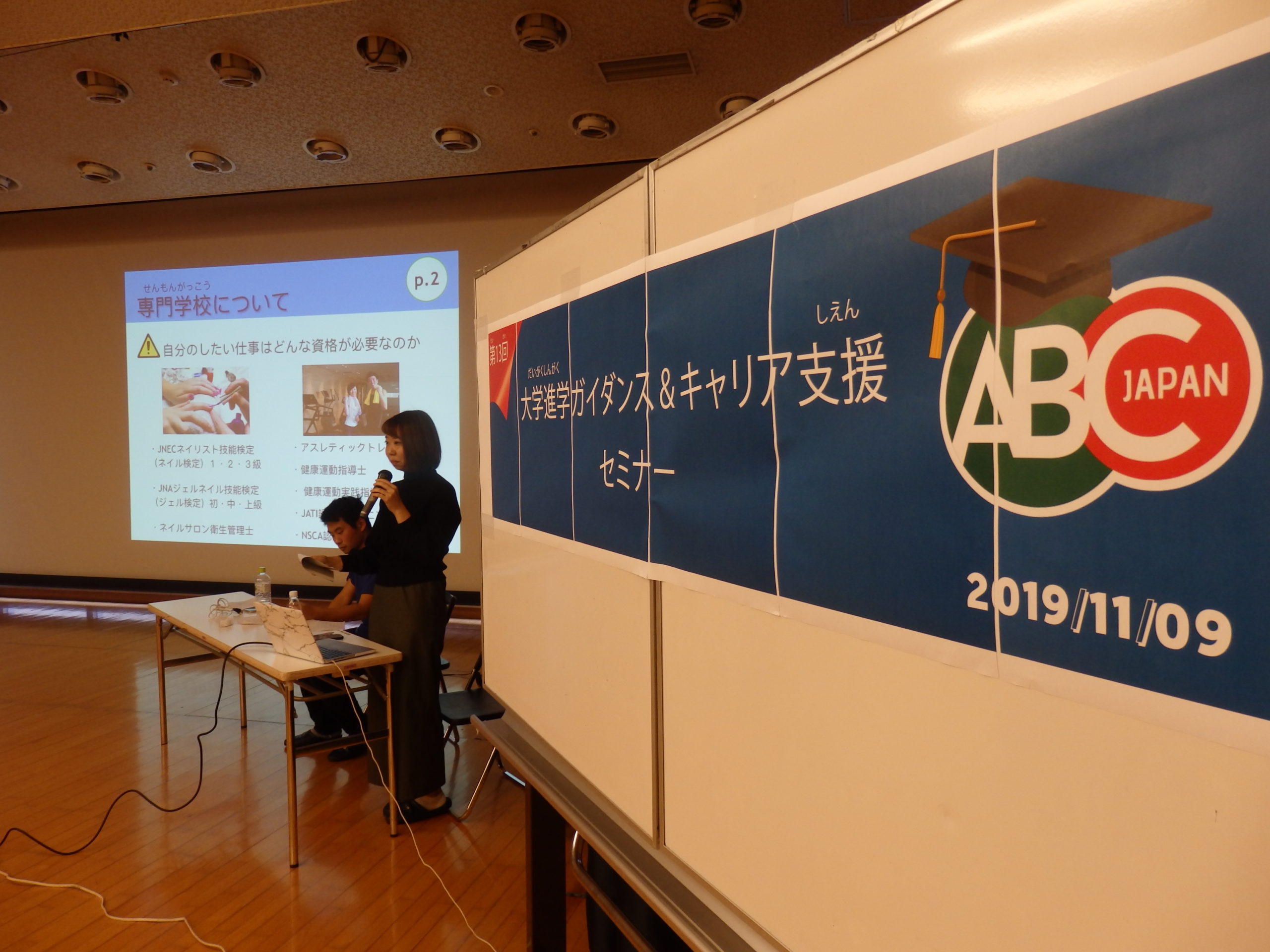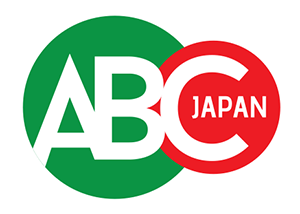Access to education
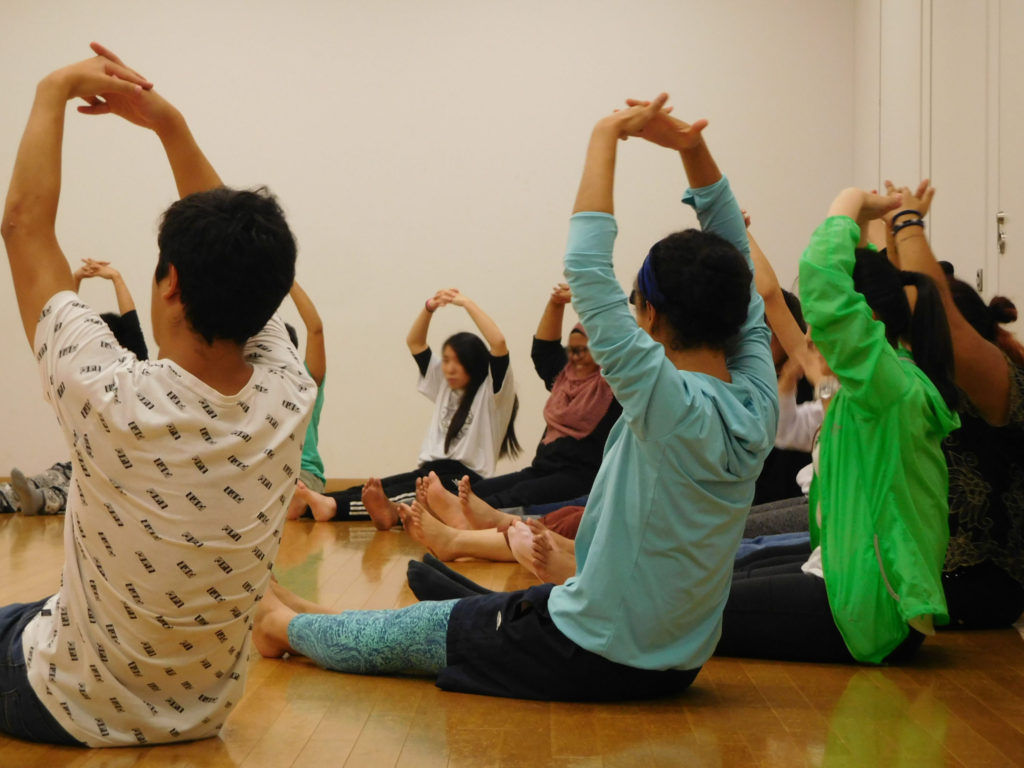
In the Tsurumi ward there are both children who are connected to foreign countries that were born and raised in Japan, and children who are newcomers in the country.
ABC Japan offers educational support for these children, and while focusing on fun activities, we encourage them to have new experiences and create a feeling of belonging. ABC Japan’s educational projects include ABC Free School, extracurricular support and orientation for college entrance exams.
- ABC Free School
- After School Tsuruminho
- Seminars about entering college and high school
Challenges faced by newcomers
Young students that arrive in Japan right after graduating from middle school may only continue their studies by enrolling in high school, due to the school system in Japan. The study level here is directly related to the student’s age, so even if a student would like to enroll in middle school again to deepen their learning in Japanese, they’re not allowed to do so.
The high school admission process may be difficult due to differences in school curriculum and foreign students might find it particularly difficult to adapt to the course held entirely in Japanese language.
Research indicates that the rate of Japanese students that proceed to high school is 98.8% against 60% of foreign students.
Challenges for those who were born and raised in Japan
The language proficiency for casual and daily conversations does not necessarily reflect in the ability to keep up with academic vocabulary and school lessons. If a child does not use the Japanese language to communicate at home, they have fewer contact with abstract expressions and complex vocabulary.
Many foreign-related children have difficulties getting help from their parents to do their homework, since these foreign parents might not have a lot of time or enough Japanese language proficiency to assist their children with school matters. This way, these children face difficulties keeping up with classes and assignments.
Another recurring issue children related to foreign countries face is feeling like an outsider and suffering bullying from classmates. Their cultural background when contrasted to the Japanese culture can emphasize prejudice, and in this case, foreign children might even drop out from school.
Common challenges
A common issue for children related to foreign countries is the lack of representativeness. There aren’t many examples of successful people around them that have chosen a different future.
When following other models around them of people who have not gone to high school and college, or don’t have a regular job, these children end up distancing themselves from other future possibilities.
- ABC Free School
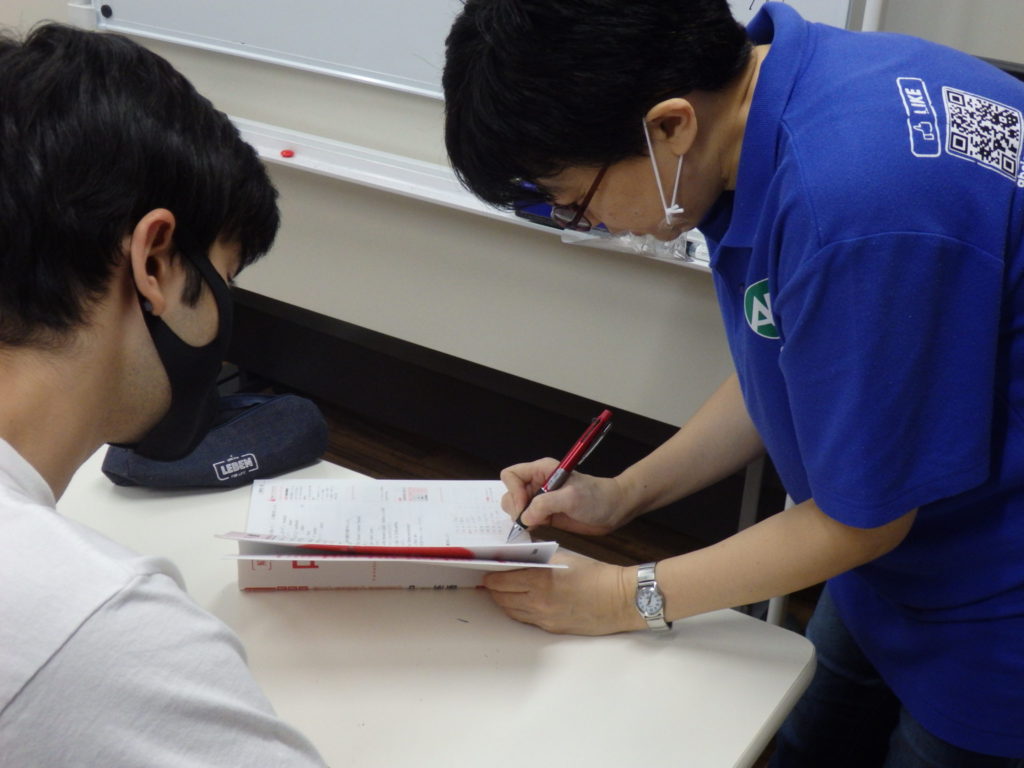
ABC Free School offers students support to enter regular Japanese high school. This educational support was designed for newcomer foreign teenagers that have just graduated from middle school or for teenagers that did not have prior opportunities to study in Japan.
The classes gather students from various countries such as Brazil, China, Nepal and Philippines. Children in our classes usually have left family and friends behind in their home countries to come along to Japan with their parents. ABC Free School is a safe place for children that are suffering from anxiety and loneliness in a country where they can’t understand the language. In this space, they can meet classmates and friends in a similar condition and create connections with each other.
Children born and raised in Japan that face similar issues in Japanese schools may also attend ABC Free School and find a safe environment to share their feelings and experiences with other students.
ABC School organizes activities to introduce Japanese culture and society to children and teenagers connected to foreign countries. Our interactions include exchange experiences with local schools and colleges, as well as sports activities to encourage physical and mental growth.
A student who attends a free school. At workshops and lectures, it becomes a communicator, and it becomes a server from a receiver.
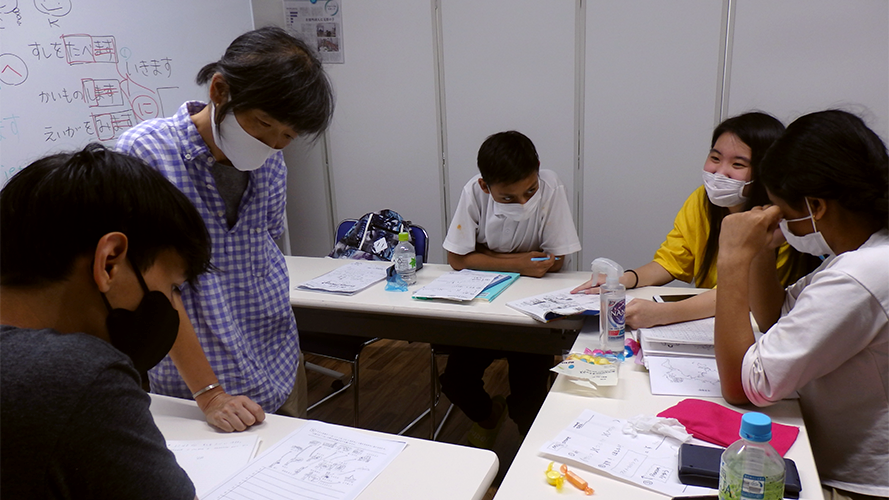
- Tsuruminho
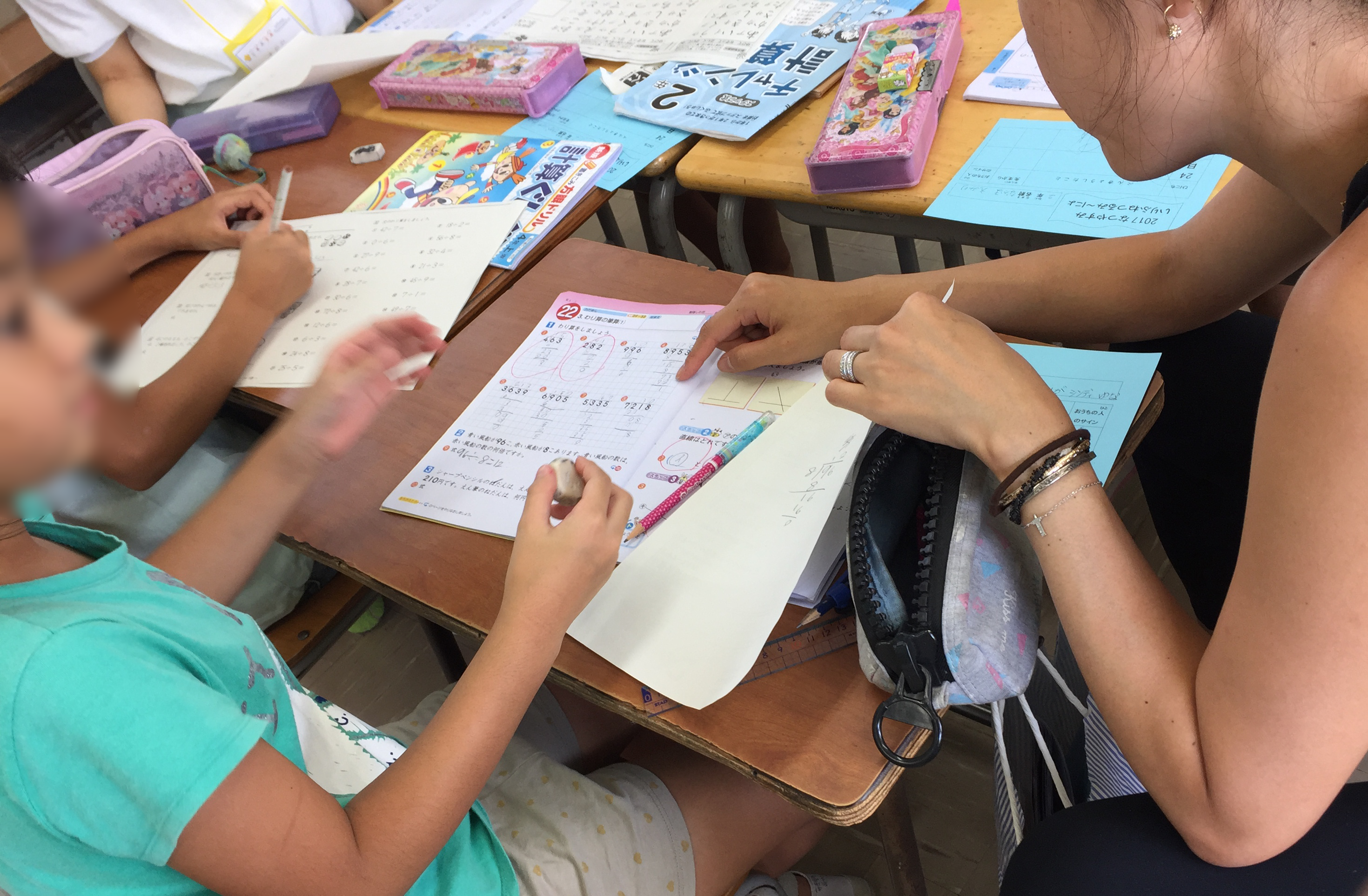
Tsuruminho is ABC Japan’s after-school weekly support program. Around 40 children connected to foreign countries join Tsuruminho per year. During the weekly activity, children may complete their homework, read outloud and recite the multiplication tables, practice writing kanji and math exercises.
Since the beginning of the program, children have reportedly increased their homework submissions in school. Tsuruminho creates a safe place for children in a similar life context to meet and share their experiences.
The local community of Tsurumi ward and college students work in the Tsuruminho project. This way, our support program also allows adults to meet and socialize while they care for the kids.
During summer break, when the homework load is larger, Tsuruminho also offers extra meeting sessions, so children may work on their assignments and tasks in a fun and relaxed environment.
When near the holiday season, Tsuruminho promotes workshops with children to teach them how to make gifts and cards. They prepare all handmade presents to share with their friends and family, and the party for gift exchanging is highly expected by all of our collaborators and members.
- Seminars about careers and entering high school and college
The admissions system for high school and college in Japan are unique. ABC Japan holds seminars and lectures to explain in depth about the Japanese educational system, examination methods, enrollment fees and other information about schools with the assistance of interpreters and various languages.
Because ABC Japan’s goal is to create more awareness about education, we count on the participation of both parents and students, so they plan together their future as a family and consider the path of university education for their children.
The seminars rely on the experience of college students connected to foreign countries. In this approach, we provide the audience with interviews and reports from successful foreign students that chose to enter college. This way, both parents and children can mirror themselves in those examples, considering that they achieved successful careers even though they have similar origins full of difficulties, as well as language and cultural barriers in Japan.
During the orientation, schools and universities come present about their study programs and answer inquiries and questions from the audience.
